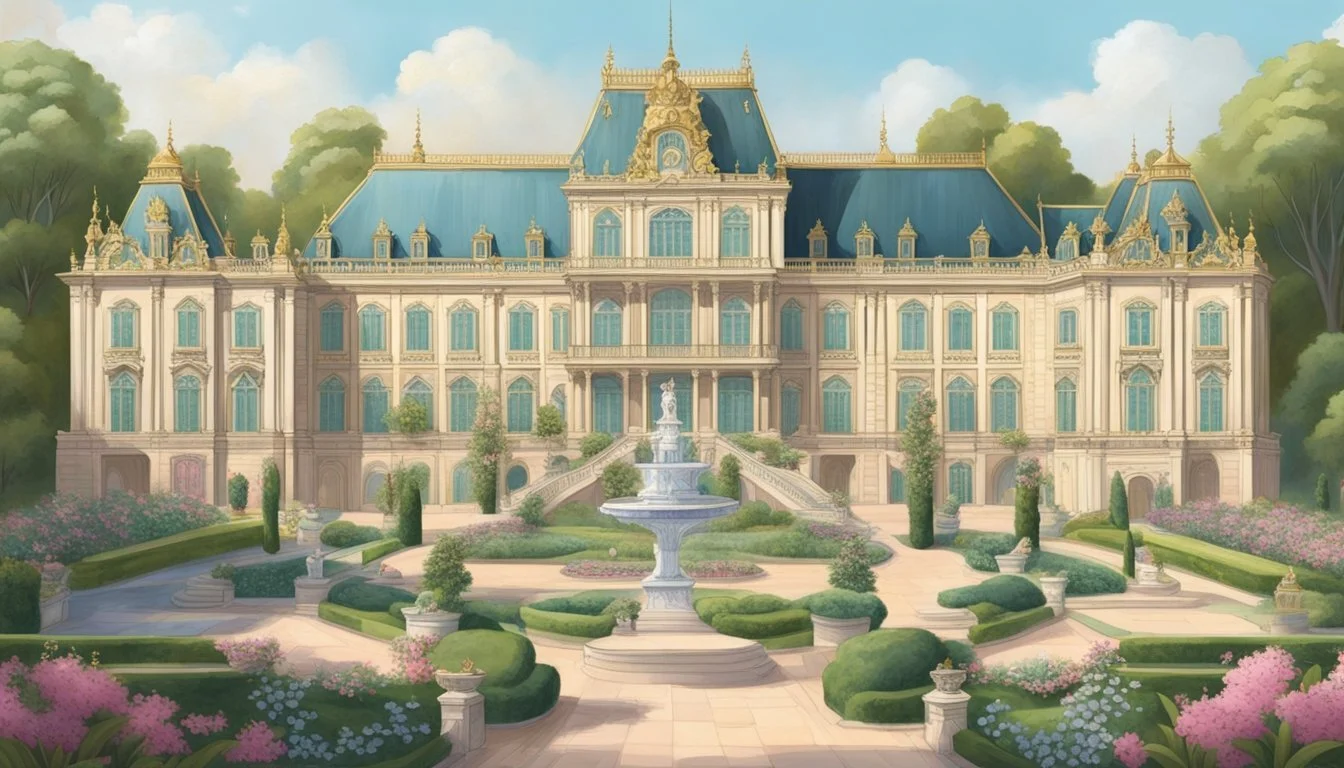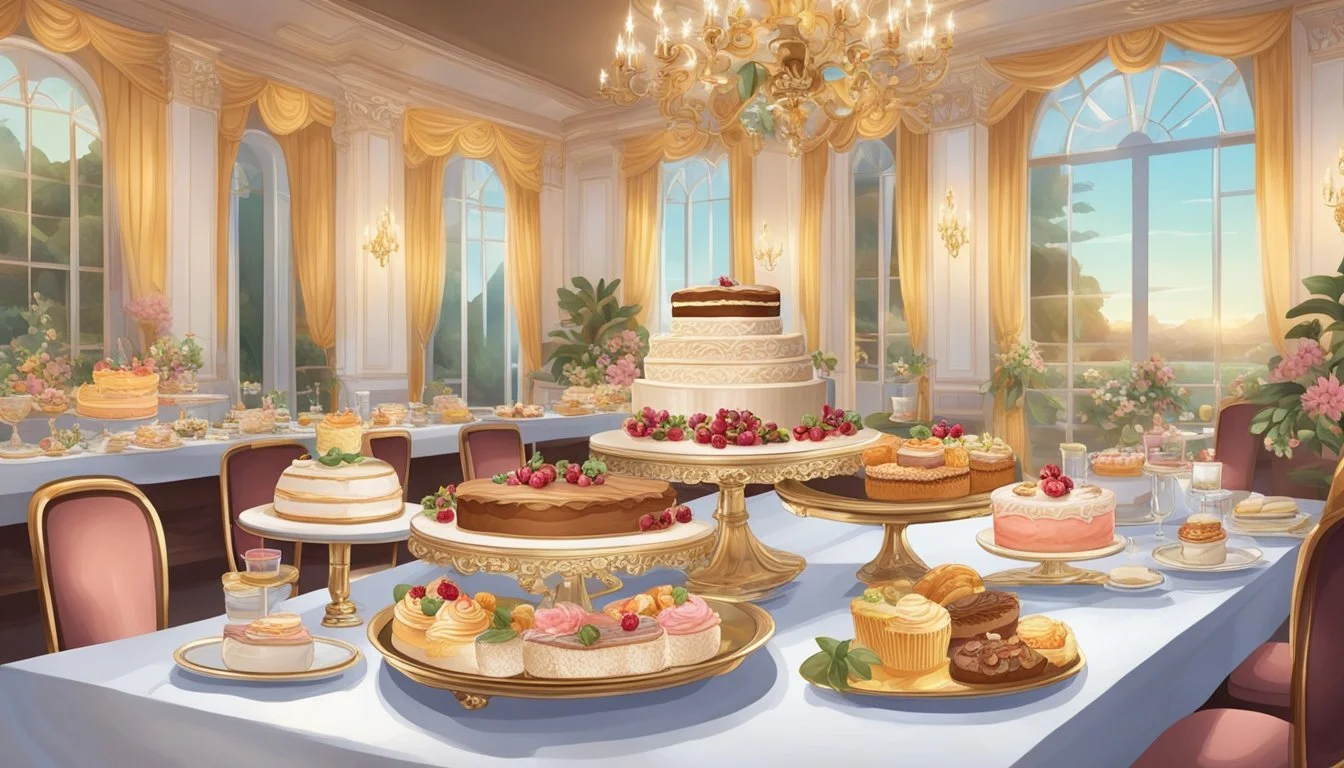6 Documentaries Examining the Life and Legacy of Marie Antoinette
A Royal Journey Through History
Marie Antoinette, the last Queen of France, remains a captivating historical figure whose life and legacy continue to intrigue audiences worldwide. Her journey from Austrian princess to French monarch, and ultimately to her tragic end during the French Revolution, has been the subject of numerous documentaries. These films offer viewers a chance to explore the complexities of her character and the tumultuous times in which she lived.
Documentaries examining Marie Antoinette's life provide valuable insights into 18th-century French politics, culture, and social dynamics. Through expert analysis, historical reenactments, and rare archival footage, these films shed light on the queen's upbringing, her role in the French court, and the events that led to her downfall. By exploring different aspects of Marie Antoinette's story, these documentaries contribute to a more nuanced understanding of this controversial historical figure.
1) 'Marie Antoinette: The Last Queen of France' by Blandine Rinkel
This documentary offers a comprehensive look at Marie Antoinette's life, from her early years as an Austrian princess to her reign as the last queen of France. Blandine Rinkel's film explores the complexities of Marie Antoinette's character and the tumultuous political climate she faced.
The documentary features rare access to Versailles, providing viewers with stunning visuals of the opulent palace where Marie Antoinette spent much of her time. It delves into her lavish lifestyle and the controversies that surrounded her during her time as queen.
Rinkel's work also examines Marie Antoinette's relationship with King Louis XVI and her role in the French court. The film presents a balanced portrayal, addressing both the criticisms and sympathetic views of the queen.
The documentary covers the events leading up to the French Revolution and Marie Antoinette's eventual downfall. It details her arrest, imprisonment, and execution, offering insight into the final days of the French monarchy.
Through interviews with historians and experts, the film provides context for Marie Antoinette's actions and decisions. It aims to present a nuanced view of this often misunderstood historical figure.
2) 'Let Them Eat Cakes: Marie Antoinette Revisited' by Suzannah Lipscomb
This documentary challenges the popular misconceptions surrounding Marie Antoinette, including the infamous phrase "Let them eat cake." Historian Suzannah Lipscomb examines the origins of this quote and its attribution to the French queen.
Lipscomb explores how the phrase became associated with Marie Antoinette despite no evidence of her ever saying it. The documentary traces the quote's actual origins to Jean-Jacques Rousseau's writings, predating Marie Antoinette's arrival in France.
The film delves into the political climate of pre-revolutionary France and how Marie Antoinette became a scapegoat for the nation's problems. Lipscomb presents a more nuanced view of the queen, highlighting her complex personality and the challenges she faced.
Through interviews with experts and analysis of historical documents, the documentary aims to separate fact from fiction in Marie Antoinette's life. It addresses other myths and exaggerations about her character and actions.
Lipscomb's work encourages viewers to reassess their understanding of Marie Antoinette's role in French history. The documentary provides a fresh perspective on the queen's life, legacy, and the events leading to the French Revolution.
3) 'Marie Antoinette: A Filmography' by Whitney Scharer
Whitney Scharer's 'Marie Antoinette: A Filmography' offers a comprehensive examination of the French queen's portrayal in cinema. This insightful documentary explores how filmmakers have interpreted Marie Antoinette's life and legacy over the years.
Scharer analyzes notable films featuring the infamous queen, from silent era productions to modern adaptations. The documentary highlights how each cinematic representation reflects the cultural and social contexts of its time.
Viewers gain insight into the evolution of Marie Antoinette's character on screen. Early films often depicted her as a frivolous and extravagant figure, while later works presented more nuanced portrayals.
The documentary also explores the historical accuracy of these films, comparing cinematic depictions to historical records. Scharer interviews film historians and Marie Antoinette scholars to provide expert commentary on the subject.
'Marie Antoinette: A Filmography' serves as a valuable resource for those interested in both film history and the enduring fascination with the last Queen of France. It demonstrates how cinema has shaped public perception of this controversial historical figure.
4) 'Secrets of Versailles: The Real Marie Antoinette'
This documentary explores the private life of Marie Antoinette at the Palace of Versailles. It focuses on her personal spaces and hidden retreats within the vast royal complex.
The film showcases the Queen's Hamlet, a secluded area within the Versailles gardens. This rustic retreat was designed to resemble a peasant village, offering Marie Antoinette an escape from court life.
Historians and experts provide insights into Marie Antoinette's daily routines and preferences. They examine her private apartments, revealing details about her tastes in art, fashion, and decor.
The documentary also investigates lesser-known aspects of the queen's life at Versailles. It explores her relationships with courtiers, servants, and family members.
Through careful research and analysis, the film aims to present a more nuanced portrait of Marie Antoinette. It challenges some popular misconceptions about her character and lifestyle.
Viewers gain access to recently restored areas of Versailles not typically open to the public. These spaces offer new perspectives on the queen's personal world.
5) 'The Marie Antoinette Diaries: Splendor and Sadness'
'The Marie Antoinette Diaries: Splendor and Sadness' offers viewers an intimate look into the private thoughts of France's last queen. This documentary brings to life Marie Antoinette's personal writings, revealing her innermost feelings and observations.
The film contrasts the opulence of Versailles with the queen's growing isolation and despair. It explores her early years as a carefree dauphine, enjoying the luxuries of the French court.
As political tensions rise, the documentary tracks Marie Antoinette's increasing anxiety and attempts to navigate court intrigues. Her writings reveal a woman struggling to maintain her position while facing mounting criticism.
The diaries provide insight into Marie Antoinette's relationships with her husband, children, and confidantes. They also shed light on her reactions to key historical events, including the storming of the Bastille.
Through careful reenactments and expert commentary, the documentary paints a nuanced portrait of a complex historical figure. It challenges viewers to reconsider their preconceptions about Marie Antoinette and her role in French history.
6) 'Marie Antoinette: The Journey' by Antonia Fraser
Antonia Fraser's 2001 biography "Marie Antoinette: The Journey" offers a sympathetic portrayal of the controversial French queen. The book challenges popular myths and misconceptions about Marie Antoinette's life and character.
Fraser presents a nuanced view of the queen, depicting her as a complex figure caught in the tumultuous events of her time. The biography traces Marie Antoinette's journey from her early years as an Austrian archduchess to her reign as Queen of France and her ultimate fate during the French Revolution.
The author's extensive research provides insights into Marie Antoinette's personal life, relationships, and the political climate of 18th-century France. Fraser explores the queen's struggles, triumphs, and the factors that contributed to her downfall.
"Marie Antoinette: The Journey" gained considerable success and served as the basis for Sofia Coppola's 2006 film adaptation. The book's popularity led to its relaunch to coincide with the movie's release.
Fraser's work stands out for its attempt to present a more balanced and human portrait of Marie Antoinette, countering the often negative depictions in popular culture and historical accounts.
Marie Antoinette: Historical Context
Marie Antoinette's life and reign were shaped by the tumultuous political landscape of 18th-century France. The monarchy's declining power and mounting societal tensions set the stage for dramatic changes that would ultimately lead to her downfall.
The French Revolution
The French Revolution erupted in 1789, fueled by economic crises, social inequality, and political dissatisfaction. Widespread food shortages and high taxes intensified public anger towards the monarchy. As queen, Marie Antoinette became a symbol of royal excess and indifference.
The storming of the Bastille on July 14, 1789, marked a turning point. Revolutionary fervor spread rapidly across France. The royal family was forcibly moved from Versailles to Paris in October 1789, effectively becoming prisoners.
Marie Antoinette's attempts to flee France in 1791 further damaged her reputation. The revolution radicalized, leading to the abolition of the monarchy in 1792.
The Bourbon Dynasty
Marie Antoinette married into the Bourbon dynasty, which had ruled France since 1589. The Bourbons practiced absolute monarchy, claiming divine right to rule.
King Louis XVI, Marie Antoinette's husband, inherited a kingdom burdened by debt and social unrest. His indecisiveness and reluctance to enact reforms contributed to the monarchy's decline.
The queen's Austrian heritage made her a target of suspicion. Critics accused her of harboring loyalties to her native Habsburg empire, dubbing her "l'Autrichienne" (the Austrian woman).
As the revolution progressed, the Bourbon dynasty's power eroded. Louis XVI was executed in January 1793, followed by Marie Antoinette in October of the same year.
Cultural Perceptions of Marie Antoinette
Marie Antoinette's image has evolved dramatically over time. Her portrayal ranges from vilified queen to misunderstood historical figure, shaped by both contemporary propaganda and modern reinterpretations.
Public Image and Propaganda
Marie Antoinette's public image during her lifetime was largely negative. Revolutionary propaganda portrayed her as frivolous, extravagant, and out of touch with the French people. Pamphlets and cartoons depicted her as a spendthrift who drained the national treasury.
The infamous quote "Let them eat cake" was falsely attributed to her, further damaging her reputation. This fabrication exemplified the public's perception of her as callous and indifferent to the plight of ordinary citizens.
Her foreign origins as an Austrian princess made her an easy target for xenophobic sentiment. Critics accused her of loyalty to Austria over France, undermining her position at court.
Modern Interpretations
Contemporary views of Marie Antoinette are more nuanced and sympathetic. Historians now recognize the role of misogyny and political manipulation in shaping her negative image during the French Revolution.
Recent portrayals in popular culture, such as Sofia Coppola's 2006 film, have presented a more humanizing perspective. These works explore her personal struggles and the pressures of royal life.
Feminist scholars have reexamined her story, highlighting the sexist attitudes that influenced her treatment. Marie Antoinette is now often seen as a victim of circumstances beyond her control, trapped in a turbulent political landscape.
Her fashion choices and cultural influence have become subjects of interest. Museums and exhibitions celebrate her impact on 18th-century style and decorative arts.
Documentary Filmmaking Techniques
Documentary filmmakers employ various techniques to bring historical figures like Marie Antoinette to life on screen. These methods help create engaging narratives and provide viewers with a deeper understanding of the subject matter.
Storytelling Approaches
Documentaries about Marie Antoinette often use a mix of chronological and thematic storytelling. Filmmakers may start with her early life in Austria, then explore key events like her marriage to Louis XVI and the French Revolution. Some documentaries focus on specific aspects of her life, such as her fashion influence or her role in French politics.
Interviews with historians and experts are frequently incorporated to provide context and analysis. Reenactments using actors in period costumes help visualize important moments in Marie Antoinette's life. Voice-over narration guides viewers through the story, offering insights and connecting different elements of the narrative.
Use of Historical Footage
While no film footage exists of Marie Antoinette herself, documentaries make extensive use of other historical materials. Paintings, portraits, and drawings from the 18th century are often featured to depict Marie Antoinette and her contemporaries. These visual elements help viewers imagine the opulence of Versailles and the fashion of the time.
Archival documents such as letters, diaries, and official records are shown on screen to provide firsthand accounts. Footage of locations significant to Marie Antoinette's life, like the Palace of Versailles and the Conciergerie prison, is used to establish settings. Some documentaries incorporate animations or digital recreations to illustrate complex historical events or architectural details of 18th-century France.


